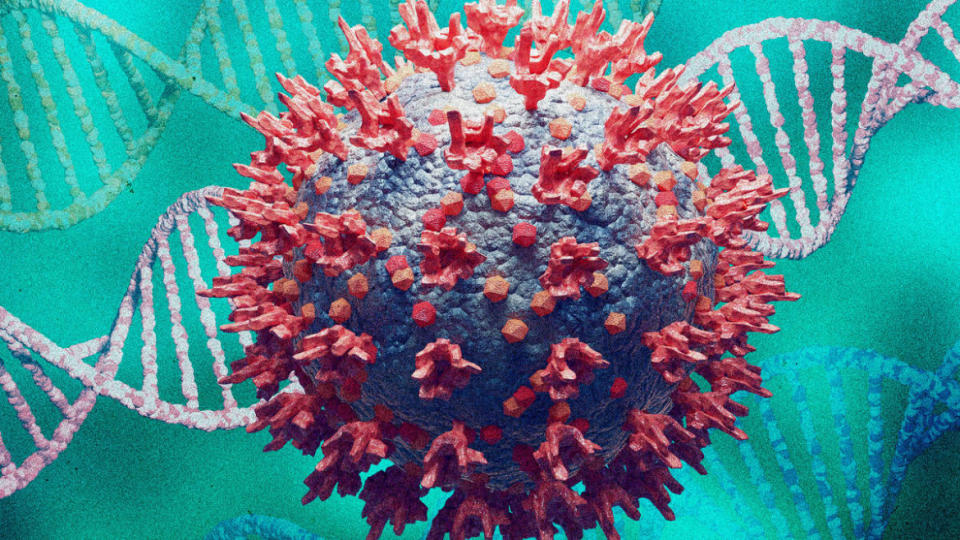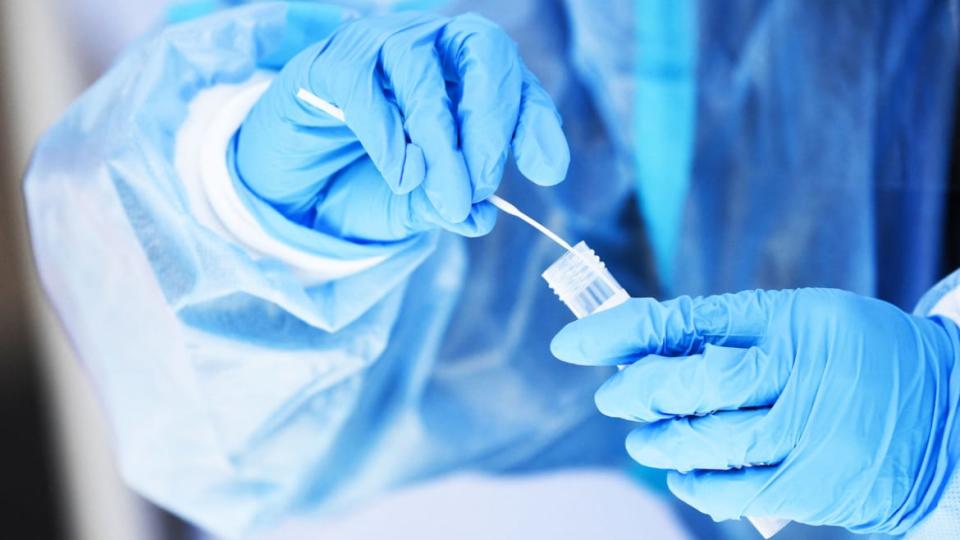How COVID Could Screw You Worse With Each Reinfection

The more times you catch COVID, the sicker you’re likely to get with each reinfection. That’s the worrying conclusion of a new study drawing on data from the U.S. Veterans Administration.
Scientists stressed they need more data before they can say for sure whether, and why, COVID might get worse the second, third, or fourth time around. But with more and more people getting reinfected as the pandemic lurches toward its fourth year, the study hints at some of the possible long-term risks.
To get a handle on the health impact of reinfection, re-reinfection and even re-re-reinfection, three researchers—Ziyad Al-Aly from the Washington University School of Medicine plus Benjamin Bowe and Yan Xie, both from the V.A. St. Louis Health Care System—scrutinized the health records of 5.7 million American veterans.
Some 260,000 had caught COVID just once, and 40,000 had been reinfected at least one more time. The control group included 5.4 million people who never got COVID at all. Al-Aly, Bowe and Xie tracked health outcomes over a six-month period and came to a startling conclusion. “We show that, compared to people with first infection, reinfection contributes additional risks,” they wrote in their study, which hasn’t been peer-reviewed yet but is under consideration for publication in Nature.
Every time you catch COVID, your chance of getting really sick with something—likely COVID-related—seems to go up, Al-Aly, Bowe and Xie found. The risk of cardiovascular disorders, problems with blood-clotting, diabetes, fatigue, gastrointestinal and kidney disorders, mental health problems, musculoskeletal disorders and neurologic damage all increase with reinfection—this despite the antibodies that should result from repeat infections.

All of the conditions are directly associated with COVID or have been shown to get worse with COVID. “The constellation of findings show that reinfection adds non-trivial risks,” the researchers warned.
This risk could become a bigger deal as more people get reinfected. Globally, the death rate from COVID is going down, thanks in large part to growing population-wide immunity from past infection and vaccines.
But at the same time, non-fatal reinfections are piling up. Around half a billion people all over the world have caught COVID more than once, according to Al-Aly, Bowe and Xie’s study, citing data from the Johns Hopkins Coronavirus Resource Center. Many more reinfections, including “breakthrough” infections in the fully vaccinated, are likely as new variants and subvariants of COVID evolve to partially evade our antibodies.
The exact increase in risk from reinfection depends on the particular disorder in question—and whether you’ve been vaccinated and boosted. Broadly speaking, however, the likelihood of heart and clotting problems, fatigue and lung damage roughly doubles each time you catch COVID, Al-Aly, Bowe and Xie found.

Ali Mokdad, a professor of health metrics sciences at the University of Washington Institute for Health, offered one important caveat: time. “In general, one would expect that COVID will do more damage with a longer infection,” he told The Daily Beast. A short-lasting COVID infection followed by another short case of COVID should be less damaging than, say, back-to-back long illnesses.
The longer your infections drag on, the greater the stress on your organs. “These are two blows instead of one,” Mokdad said.
But it’s possible the worsening outcomes resulting from reinfection have little or nothing to do with the cumulative stress of successive long illnesses. According to Peter Hotez, an expert in vaccine development at Baylor College, the escalating risk could result from a poorly-understood phenomenon called “immune enhancement.”
A virus undergoes immune enhancement when a person’s immune system, after initial exposure to the pathogen, backfires during reinfection. Someone suffering immune enhancement with regards to a particular disease is likely to get sicker and sicker each time they’re exposed.
Immune enhancement could explain Al-Aly, Bow and Xie’s observation of escalating risk from COVID reinfection. “If the observation is true,” Hotez stressed. But it’s possible the observation is inaccurate. Hotez said he’s “not convinced that reinfection is actually more severe.”
Anthony Alberg, a University of South Carolina epidemiologist, told The Daily Beast he, too, is somewhat skeptical. Just how much more risk you might accumulate with each case of COVID is really hard to predict. And Al-Aly, Bow and Xie’s study is too cursory to totally settle the uncertainty all on its own.
The main problem, Alberg explained, is tied to a classic logical dilemma: causation versus correlation. Just because veterans got sicker with each COVID infection doesn’t necessarily mean COVID is definitely to blame, he pointed out. The vets in the study who came down with COVID more than once maybe tended to belong to groups with overall worse health outcomes whether or not they caught COVID twice, thrice or never.
The Massive Screwup That Could Let COVID Bypass Our Vaccines
“Compared with veterans who were infected once with SARS-CoV-2, those who were infected two times or more were more likely to be older [or] Black people, reside in long-term care, be immunocompromised, have anxiety, depression and dementia and to have had cerebrovascular disease, cardiovascular disease diabetes and lung disease,” Alberg said.
COVID, in other words, might be beside the point. It’s possible the worsening outcomes in Al-Aly, Bow and Xie’s study are due to the fact that the reinfected patients “were on average older and with much poorer health status than those with one infection,” Alberg said, “not because of having been infected more than once.”
Untangling causation and correlation in a study of this scale could be tricky. “More evidence [is] needed on this topic before definitive conclusions can be reached,” Alberg said.
In the meantime, it should be easy for us to mitigate the potential risk. Anyone who comes down with COVID a second time shouldn’t hesitate to take a course of paxlovid or some other antiviral drug that’s approved for the disease. “We should continue to focus on making sure people are aware of the benefits of early treatment,” Jeffrey Klausner, an infectious diseases expert at the University of Southern California Keck School of Medicine, told The Daily Beast.
Better yet, we could focus on developing “strategies for reinfection prevention,” Al-Aly, Bow and Xie wrote.
The top priority, of course, should be vaccinating the unvaccinated. Even the best COVID vaccines aren’t 100-percent effective at preventing infection or reinfection—and they’re getting somewhat worse as SARS-CoV-2 evolves for greater immune-escape.
But even with cleverer viral mutations, the jabs are still pretty effective. You can’t get sicker and sicker with reinfection… if you never get infected in the first place.
Get the Daily Beast's biggest scoops and scandals delivered right to your inbox. Sign up now.
Stay informed and gain unlimited access to the Daily Beast's unmatched reporting. Subscribe now.

 Yahoo Movies
Yahoo Movies 